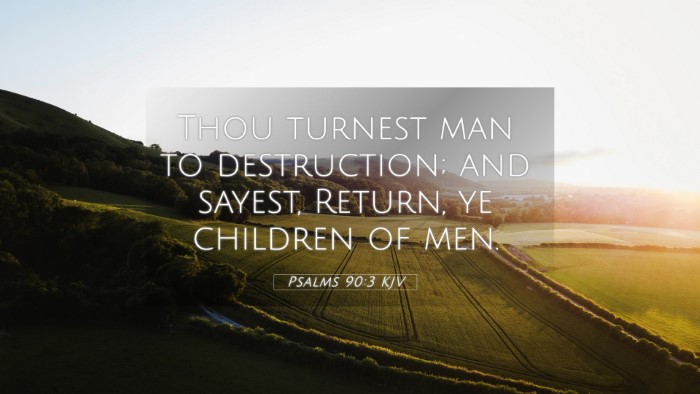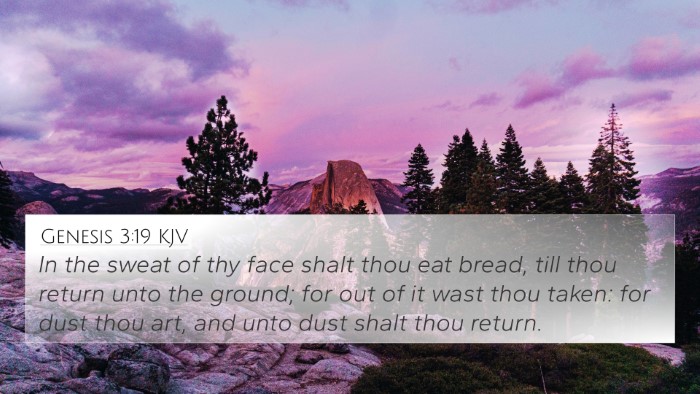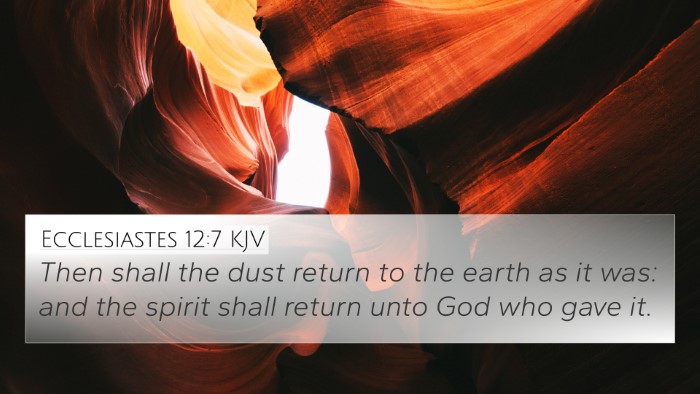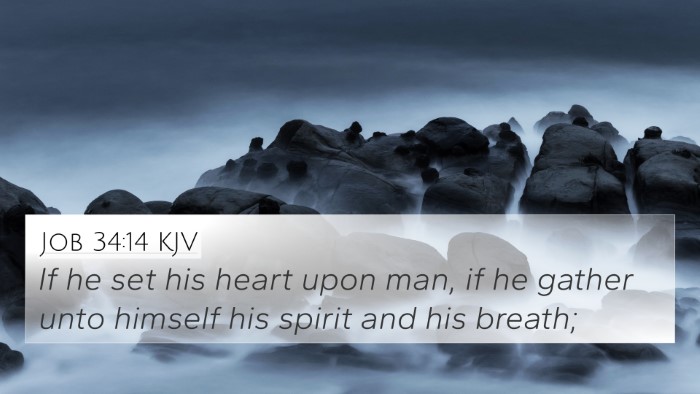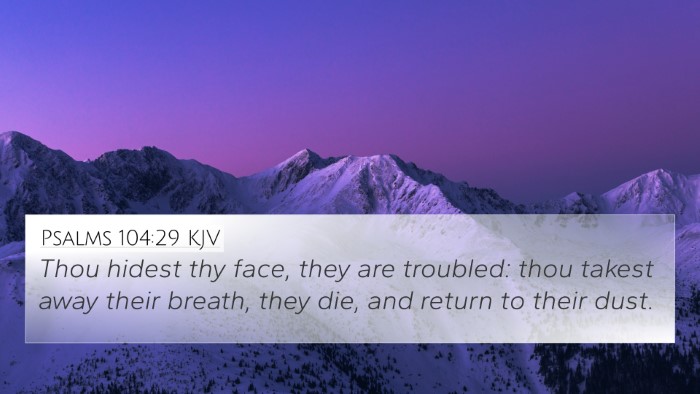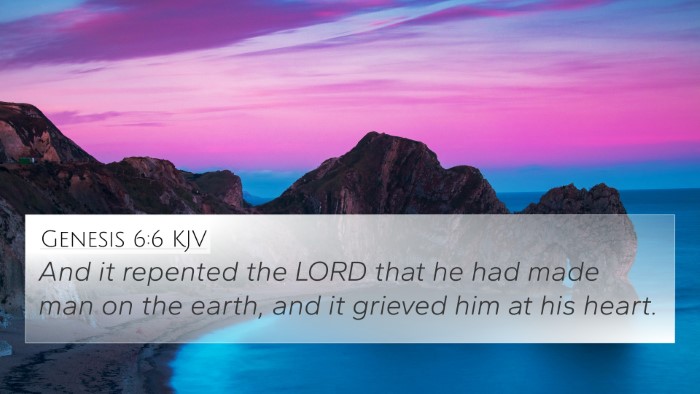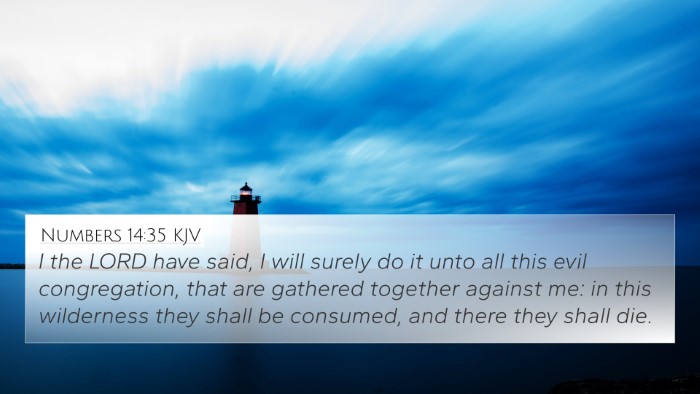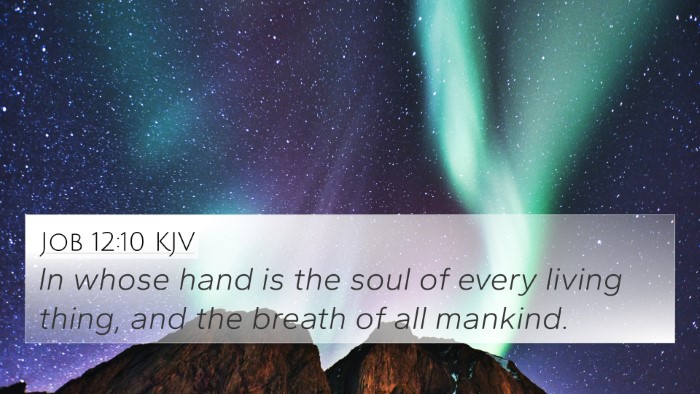Psalms 90:3 - Understanding the Verse
Bible Verse: "You turn man to destruction; and say, Return, ye children of men." (Psalms 90:3)
Verse Meaning
This verse from Psalms is a profound reflection on the mortality of humankind and the impermanence of life. The act of returning to destruction implies that God acknowledges the frailty of human existence. It serves as a reminder of the transitory nature of human life while highlighting the divine authority of God to call people back to Him.
Commentary Insights
-
Matthew Henry:
Henry emphasizes the solemnity of human life within God's sovereignty. He notes that God's justice demands a return to Him, which is necessary for restoration. The passage suggests that the acknowledgment of one’s mortality should lead to repentance and a turning back to God.
-
Albert Barnes:
Barnes expounds on the nature of death as a divine decree. He interprets the phrase "return" as a summons to recognize our dependence on God amidst our fleeting lives. This verse connects to the broader biblical theme of human frailty and divine mercy.
-
Adam Clarke:
Clarke sees this verse as reflecting on the vastness of God's power over life and death. He highlights that humans are reminded of their frailty and need for reconciliation with God. He relates this verse to themes of repentance and the need for divine grace.
Cross References
For comprehensive understanding and deeper insights, the following Bible verses serve as connections and themes related to Psalms 90:3:
- Job 14:1-2: "Man that is born of a woman is of few days and full of trouble. He cometh forth like a flower, and is cut down: he fleeth also as a shadow, and continueth not."
- Ecclesiastes 3:20: "All go unto one place; all are of the dust, and all turn to dust again."
- Genesis 3:19: "In the sweat of thy face shalt thou eat bread, till thou return unto the ground; for out of it wast thou taken: for dust thou art, and unto dust shalt thou return."
- Isaiah 40:6-8: "The voice said, Cry. And he said, What shall I cry? All flesh is grass, and all the goodliness thereof is as the flower of the field. The grass withereth, the flower fadeth: because the spirit of the Lord bloweth upon it: surely the people is grass."
- Hebrews 9:27: "And as it is appointed unto men once to die, but after this the judgment."
- James 4:14: "Whereas ye know not what shall be on the morrow. For what is your life? It is even a vapor, that appeareth for a little time, and then vanisheth away."
- Psalm 39:4-5: "Lord, make me to know mine end, and the measure of my days, what it is; that I may know how frail I am. Behold, thou hast made my days as an handbreadth; and mine age is as nothing before thee: verily every man at his best state is altogether vanity."
Thematic Connections
Various themes arise through linking Bible scriptures in the context of Psalms 90:3:
- Human Mortality: The theme of the fleeting nature of life is emphasized across multiple verses.
- Divine Sovereignty: God's control over life and death underscores an overarching biblical principle.
- Call to Repentance: Many verses encourage humanity to return to God, acknowledging their dependence on Him.
- Hope in Redemption: Though life is transient, the hope for redemption through God remains a constant theme in scripture.
Using Cross-References in Study
To utilize Bible cross-references effectively:
- Examine verses that emphasize similar themes to reinforce understanding.
- Consider contrasting verses to see different perspectives on mortality and God's sovereignty.
- Look for verses that offer hopeful promises in light of human frailty.
- Employ tools such as a Bible concordance or cross-reference guide to uncover more connections.
Conclusion
Psalms 90:3 serves as a poignant reminder of the nature of human mortality and divinity's call for repentance. Through the exploration of various commentaries, cross-references, and links to related scriptures, one can gather a holistic understanding of this Bible verse. Utilizing these tools and insights will enrich any Bible study or sermon preparation, promoting deeper connections with the text and its implications for life.

